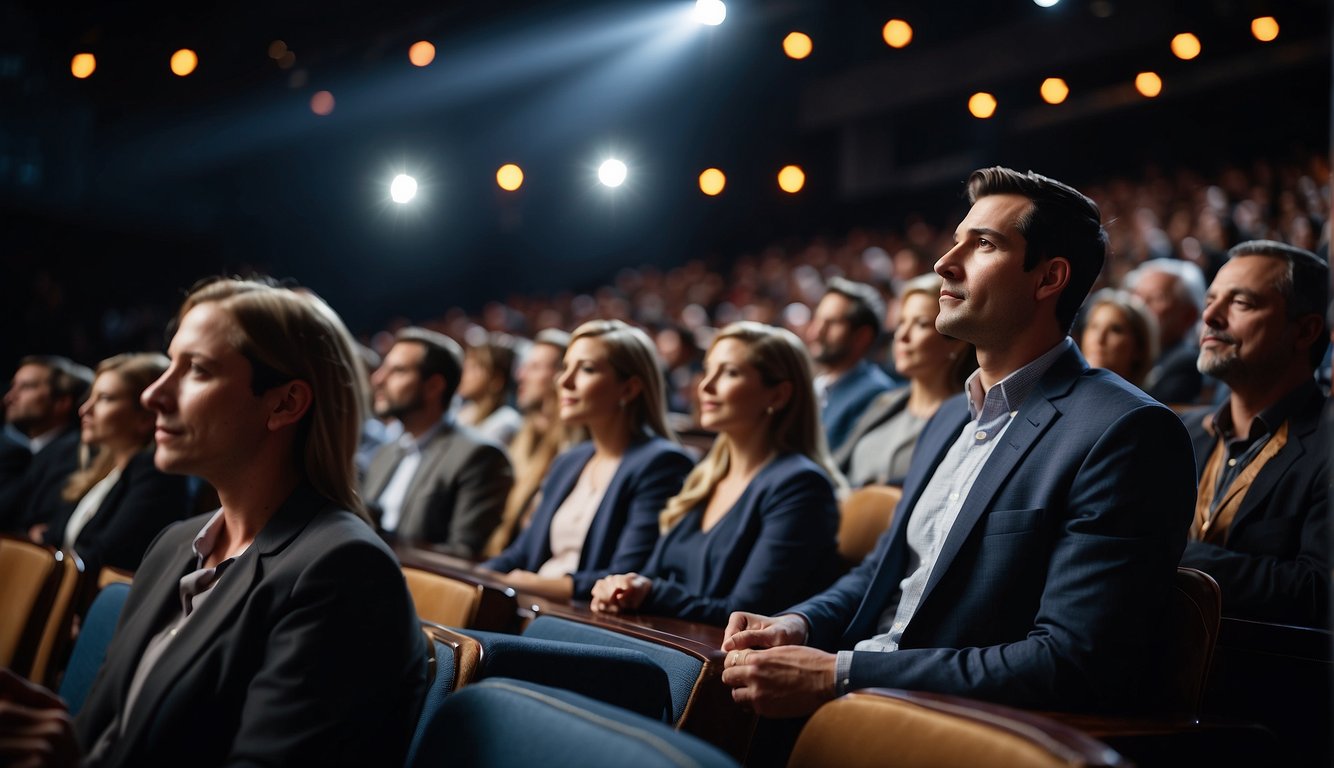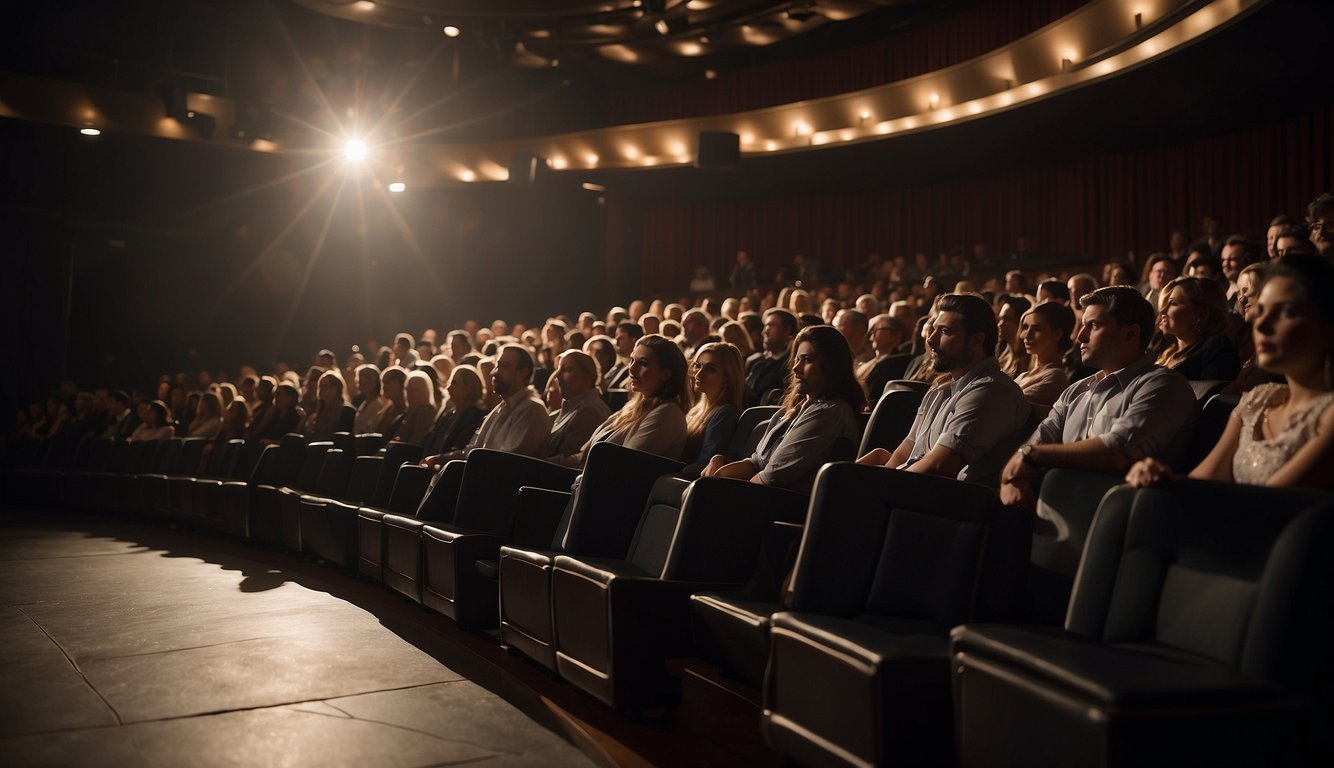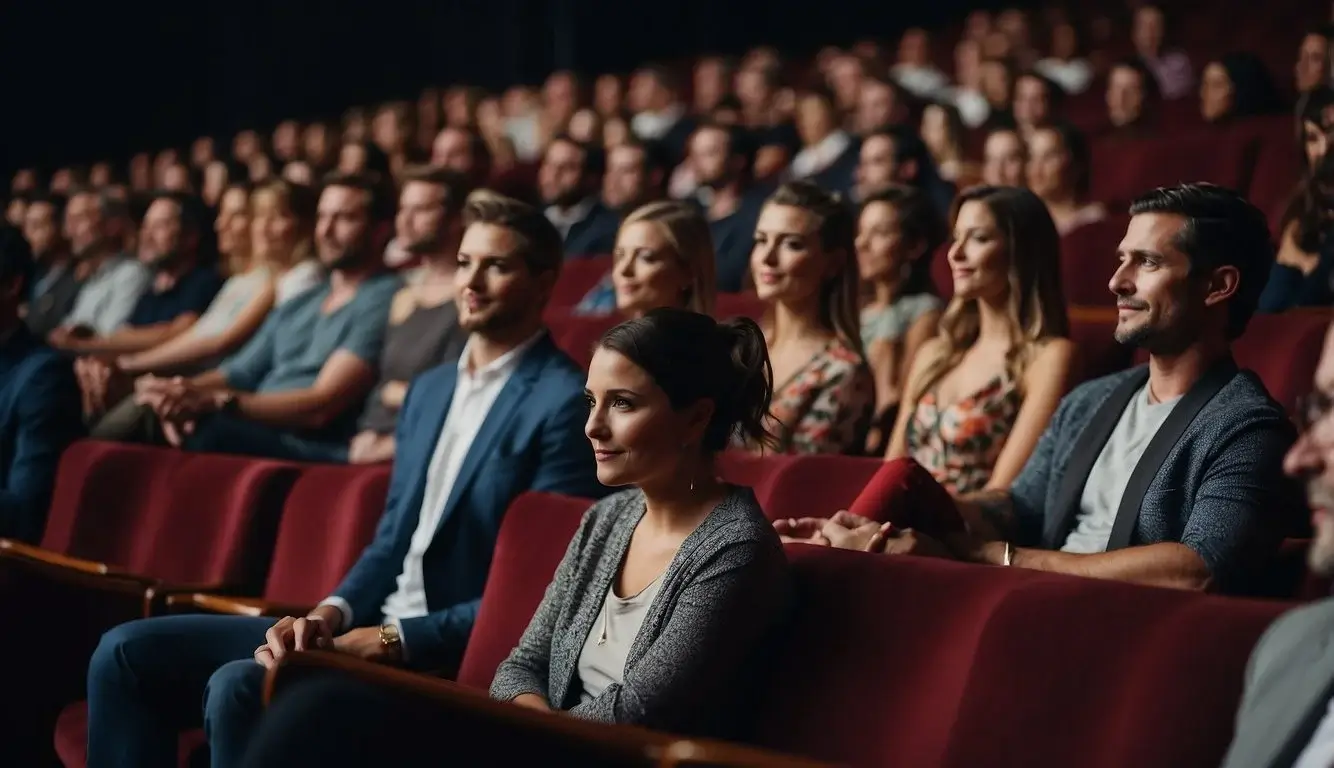I’m excited to present an in-depth guide to theater etiquette following an extensive examination of the customs and unwritten rules of live theater. This guide is designed to ensure every visit to the theater is both respectful and rewarding. Stepping into a theater plunges us into a world of narrative and artistic creativity, where we each play a role in maintaining the ambiance and respect that this art form deserves.
This guide to theater etiquette is your backstage pass to understanding how to navigate the theater gracefully and carefully from the moment you enter the venue to the final curtain call. Adhering to these guidelines enhances your experience and upholds the collective enjoyment and appreciation of the performance, ensuring that the theater remains a space where creativity and respect flourish side by side.
Key Takeaways
- Theatre etiquette enhances the experience for everyone involved.
- Respect for performers and fellow audience members is paramount.
- Awareness of one’s conduct is essential before, during, and after the performance.
Before the Performance

When preparing to attend a theater show, there are several key points to consider to ensure an enjoyable and respectful experience: from purchasing tickets to showtime etiquette.
Buying Tickets
I always book my tickets in advance, particularly for popular Broadway shows, to avoid disappointment. To avoid fraudulent tickets, it’s important to purchase from the official site or a reliable third party.
Pre-Show Preparation
Confirming the show’s address and start time before attending the theater is crucial; I’ve found that this helps me plan my arrival. A dress code may be suggested, so I like to dress up accordingly, balancing comfort and formality.
At the Theater Entrance
Arriving early is my go-to advice for anyone attending a performance; it eases stress and allows time for unexpected delays. Remember, the theater’s front-of-house staff are there to assist. If I’m carrying large bags, I check the theater’s policy as some may require them to be checked in.
Finding Your Seat
Upon entering the house, the ushers will guide me to my seat, typically indicated by the section (e.g., mezzanine) and seat number on my ticket. If I need to pass others to reach my seat, a polite “excuse me” makes the process smoother.
Pre-Show Etiquette
As the theater fills and the lights dim for the pre-show announcement, I make it a point to turn off my cell phone. The pre-show time is not for talking; it’s an opportunity to read through the playbill and absorb the atmosphere silently.
Understanding Intellectual Property
The production is the intellectual property of the director, writers, and creators. That means no photography or recording—it’s not just disrespectful, it’s illegal. I always respect these boundaries as they protect the artists’ work and the uniqueness of the live theater experience.
Interacting with Performers
If there’s a chance to meet actors at the stage door after the performance, I keep my comments kind and brief. I remember they’re hard-working performers who have just given their all on stage and appreciate courteous interactions.
Program and Playbill
I like to pick up a playbill, which includes the cast, information about the piece, and often the length and content warnings. It’s a little like having the highlights of a drama classroom in my hands and enriches my understanding of the performance.
During the Performance

When I attend a live performance, I focus on respecting the actors and fellow audience members. This involves understanding proper behavior, managing any distractions, reacting appropriately, and being engaged with the show.
General Behavior
Respect is paramount when I am part of an audience. It’s crucial that I remember the basics: talking is out of the question, and so is any behavior that might be distracting. I follow the unspoken dress code for Broadway, which usually entails smart casual attire, to show that I’m taking the occasion seriously.
- No Talking or Whispering: Even whispers can carry in a quiet theater.
- No Cellphone Use: I ensure my phone is silenced or turned off. Texting or checking messages is a no-no.
- Avoid Noisy Activities: Unwrapping candy or cough drops before the show starts helps avoid noise during the performance.
Dealing with Distractions
Sometimes distractions happen, but it’s how I respond to them that matters. If I hear someone around me snoring or whispering, a gentle reminder or a quiet word to an usher can help resolve the issue without further interrupting the performance.
- Coughs and Sneezes: I come prepared with cough drops and use them discreetly if needed.
- If I Feel Drowsy: It’s best to stand up during intermission to get some air instead of risking falling asleep.
Appropriate Audience Reactions
Reacting at the wrong time can be just as disruptive as talking. Even if I know the song during musical numbers, I resist the urge to sing along. I save my applause until the end of a scene or a musical number, and laughing is wonderful but only at the intended comedic moments.
- Applause: At the end of a performance or scene, showing appreciation with applause is expected.
- Laughing: A natural reaction to comedy, but I keep it at a reasonable volume.
Engagement with the Show
Staying engaged can enhance my theater experience and also show the performers that I appreciate their work. I pay full attention to the story and the efforts of everyone on stage.
- Absorb the Atmosphere: I relish the unique ambiance of live theater.
- Respectful Engagement: Even though I’m silent, my attentiveness and reactions contribute positively to the shared experience.
After the Performance

When the final lines are spoken and the curtain falls, my appreciation for the actors and the performance is shown through hearty applause and adherence to an orderly exit.
Showing Appreciation
I always clap enthusiastically to commend the actors for their hard work; it’s a small gesture to show immense respect for their dedication and talent. During this time, if the performance has deeply moved me or exceeded my expectations, it may be appropriate to give a standing ovation. I wait for the lead actors and the rest of the cast to come out for the curtain call, ensuring I give them their well-deserved acknowledgment.
Exiting the Theater
Once the applause subsides, courteously exiting the theater is important to me. I patiently await my turn, refraining from rushing to the exits. I avoid leaving early unless absolutely necessary, as it can be seen as disrespectful to the performers and disruptive to the audience. It’s essential to respect both the performers and my fellow audience members, ensuring we all part with the memory of a great performance intact.
FAQ – Theatre Etiquette
What should I wear to a theatre performance?
While there’s often no strict dress code for attending theatre performances, it’s customary to dress smartly or semi-formally as a sign of respect for the performers and the venue. The dress code can vary depending on the time of day and the nature of the production, so it’s a good idea to research in advance.
Is it okay to arrive late to a theatre performance?
Arriving late is generally frowned upon as it can disrupt the performance and disturb other audience members. If you arrive late, you may have to wait for an appropriate break in the performance before being allowed to take your seat.
Can I use my phone during the performance?
Using your phone, including texting, taking photos, or recording during a performance, is considered highly disrespectful and disruptive. Ensure your phone is turned off or on silent mode before the performance begins.
Is it acceptable to eat or drink in the theatre?
Eating during a performance can be distracting due to the noise of wrappers and the smell of food. Some theatres allow drinks purchased at the venue, but it’s best to finish any snacks or drinks during the intermission or before the performance starts.
If you enjoyed reading about Theatre Etiquette, check out our other articles:
- Bowling Etiquette 2024: Tips for Polite Play on the Lanes
- Surf Etiquette 2024: Key Rules for Sharing the Waves
- Tennis Etiquette 2024: Key Rules and Polite Play for Beginners
- Laundromat Etiquette 2024: Tips for a Harmonious Wash Day
Feel free to also check out our other Articles from the category “Etiquette & Manners“ and don’t forget to follow us on Pinterest.






